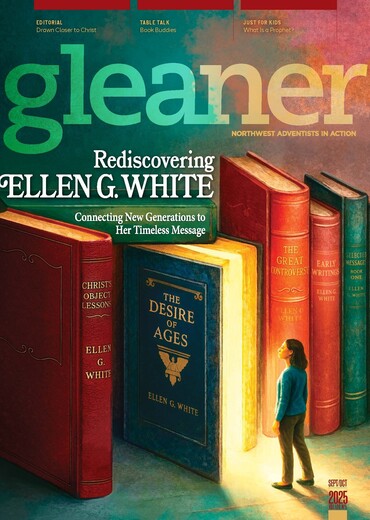As I write this latest installment of my monthly column, I am embarked on preparations for my Ph.D. qualifying exams this fall. This means my brain is overloaded with random bits of information pertaining to Husserl’s phenomenology, Derrida’s critique of that phenomenology, the history of radio (which includes the odious Father Coughlin and the heartbreaking Kristallnacht), the philosophy of the mirror’s double reflection, symbolic interactionism, and so so so so much more … so much more … .
I believe this has resulted in my brain rejecting commonly useful items like where I put my shoes, how to use a key fob, what paper is made out of, the names of my pets, how to make spaghetti and all kinds of other random details to make room for the comprehensive knowledge needed to defeat the exams. Pray for me and my wife, who will no doubt be finding cereal boxes in the freezer and who will attempt to stop me from putting socks on my hands before leaving the house. I am taking July off to study and to prevent myself from saying weird things in Sabbath sermons or forgetting how stairs work and plummeting off the platform.
In the midst of all this knowledge consumption I came across an encouraging word from O.C. Richard’s 840-page A History of Preaching … vol. 1 … which will also be needed for the exams. In commenting on the Second Great Awakening of the 19th century, Richards describes the experience of revivalist Charles Finney: “The frequency of his sermons and the demand of other duties mean that he often did not have an opportunity to think of what he was going to say until the last minute” (p. 517). That is a literal nightmare for me, finding out I am on to speak and not having any chance to prepare.
Yet, Richards records Finney stating, “Some of the most telling sermons I have ever preached in Oberlin [his church], I have thus received after the bell had rung for church; and I was obliged to go and pour them off from my full heart, without jotting down more than the briefest possible skeleton, and that sometimes not covering half the ground that I covered in my sermon” (ibid.).
This wasn’t because Finney was a slacker — just the opposite. God blessed his efforts with such revival and influence that he literally had no time for prep outside his regular Bible study. Yet, somehow, he made it. God gave him the grace to get through that ministry season.
Life is not short on exams — whether they are written exams to achieve the next degree, or a set of circumstances beyond your control that you must navigate. While the text gets abused and interpreted as a way to bless a lack of good decision making, or even to minimize the real pain life can bring, Rom. 8:28 gives me some strength: “And we know that for those who love God all things work together for good, for those who are called according to his purpose.”
I often don’t know how things will work, despite my best efforts. I also look through the testimonies that come from history, as well as personal friends, and find that others often didn’t know how life was going to work either — but they made it somehow.
Scripture provides a host of God followers who also had stressful tests to pass that made little to no sense at the time. Almost all of the classic Bible stories we learn as kids revolve around this theme. David faces Goliath, Daniel’s friends have to endure the fiery furnace, Daniel goes to the lion’s den, Esther has to approach the king and save her people with a clever plan, the disciples have to endure the cross and the faith shaking (and resurrecting) aftermath, and Paul has numerous church planting problems. By God’s grace they made it. I need that reminder from time to time and so do you.
The final words of Jesus’ in the Gospels involve test, but also a promise. Jesus says, “Go therefore and make disciples of all nations, baptizing them in the name of the Father and of the Son and of the Holy Spirit, teaching them to observe all that I have commanded you. And behold, I am with you always, to the end of the age” (Matt. 28:19–20).
We go a lot of places, and we carry our witness with us (even if we aren’t formally teaching/preaching). It is comforting to know that the biographies of Jesus don’t end, “Good luck. Don’t mess this up and fail Me.” Instead we have a promise that, no matter what test comes, Jesus will be with us. May His presence and love cast out any fear you have for the tests ahead.











